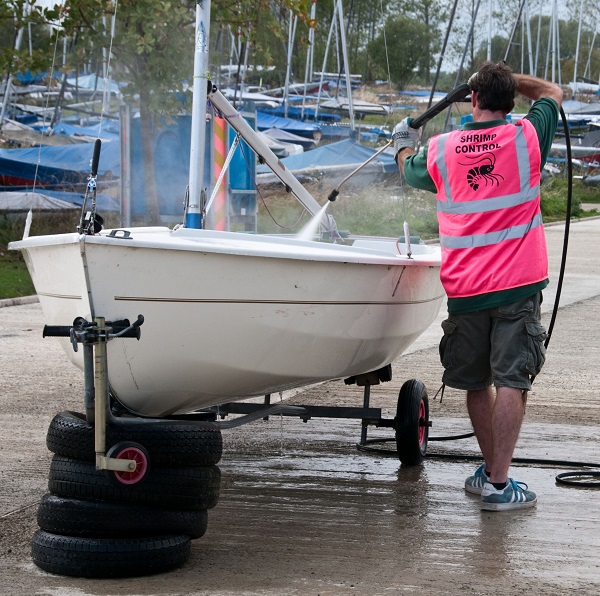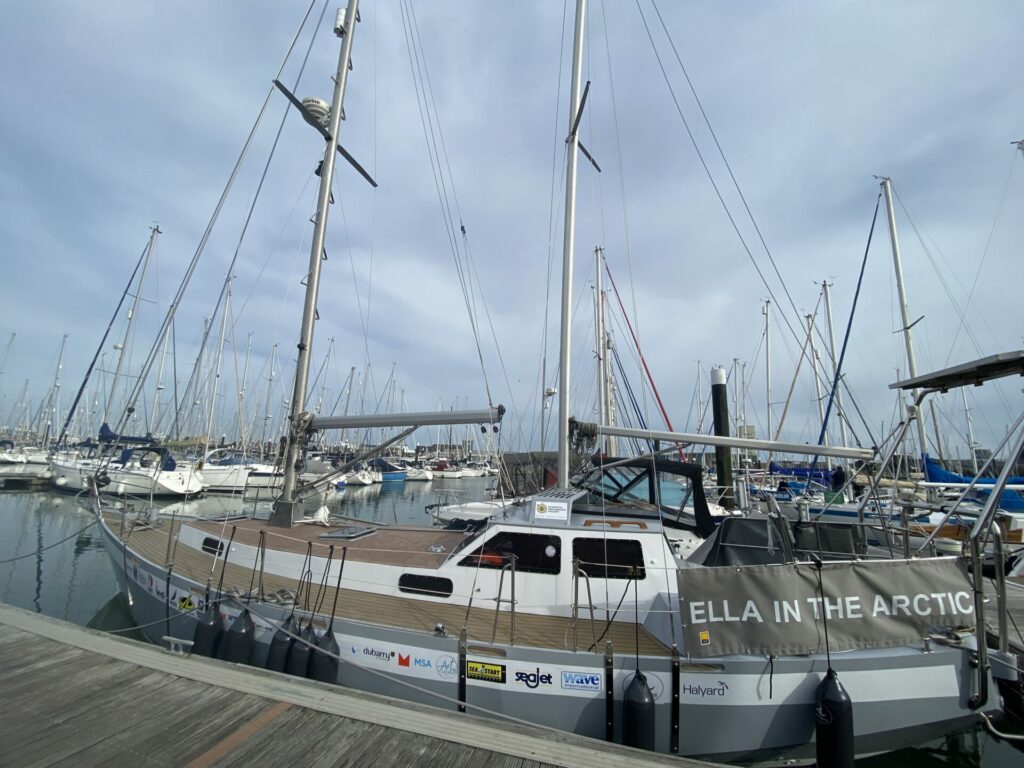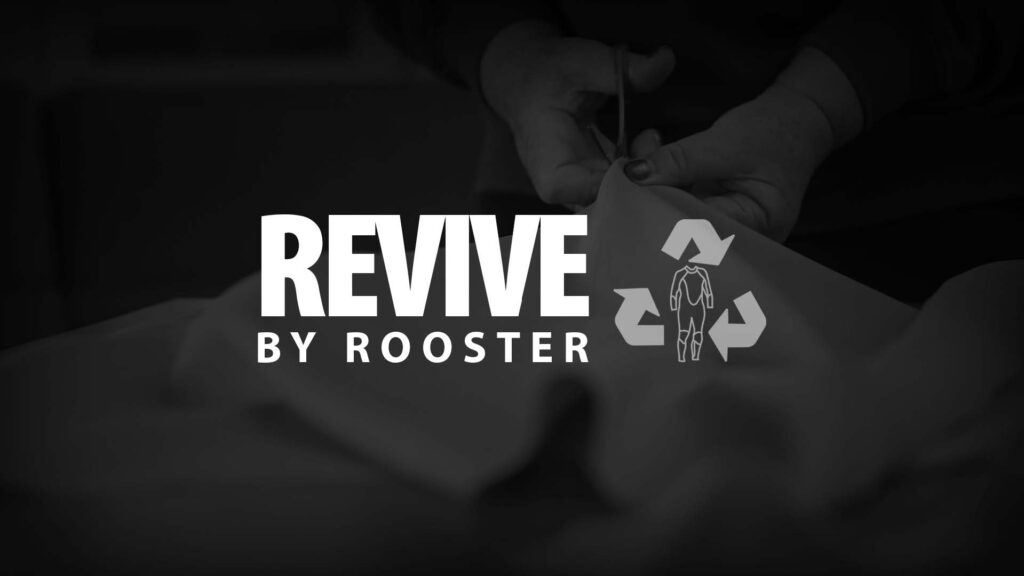Grafham Water Sailing Club, Cambridgeshire
Once established, non-native invasive species become extremely difficult and expensive to eradicate. Read how one club continue to tackle the problem…
The problem
The Killer Shrimp is a particularly aggressive predator, preying on a range of invertebrates, particularly native shrimps and young fish, sometimes wiping out entire populations. Previously unknown in the UK, it was spotted by two keen eyed anglers, and specimens were sent to the Environment Agency for identification. As a consequence, a temporary ban on boat movements was imposed during investigations and Grafham Water Sailing Club had to cancel a scheduled open event.
The solution
The club implemented strict processes and established good working relationships with all those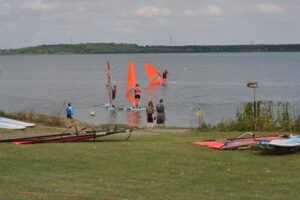 involved. The main action was to ensure that all boats and windsurfers were washed, checked and signed out before leaving the site. No boat was allowed to leave the site without handing in a ‘washed’ token – ensuring that everyone followed the same regime.
involved. The main action was to ensure that all boats and windsurfers were washed, checked and signed out before leaving the site. No boat was allowed to leave the site without handing in a ‘washed’ token – ensuring that everyone followed the same regime.
Signs and notices were put up all around the club and briefings were given before all training and racing events. With good planning, plenty of people and good co-operation, Grafham minimised the time it took to wash down boats – at the Laser Inlands, over 250 boats were processed in just over 1 hour!
Two wash points were set up; a main wash point at the main entrance to the clubhouse with three pressure washers and a second hosepipe on the windsurfer slipway. Additional wash points are set up for use at all events where there is a significant number of visiting boats, all of whom receive clear instructions and are monitored by marshals.
Club members were asked to ensure that objects or equipment (including trollies) were not left in the shallows for any length of time as trollies were identified by surveys as the main way that shrimps leave the water.
The results
The temporary ban was lifted and the Club is now permitted to operate by following a regime in which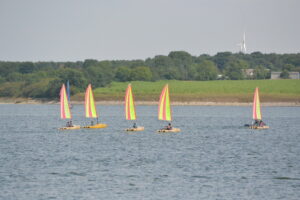 any boat leaving the Club premises is first washed down with fresh water.
any boat leaving the Club premises is first washed down with fresh water.
Despite the presence of the Killer Shrimp, the club is able to continue with a busy programme of activities and events. The shrimp control measures will be in place for the foreseeable future, but the decontamination methods in place mean no-one should be put off from visiting – after a great day’s sailing you even get your boat washed down for free!
If you’re interested in finding out more about reducing the spread of invasive species, visit the Invasive Species Prevention page.
Show your support
The 15 – 19 May is Invasive Species Week, an annual national event raising awareness of the problems caused by invasive species and what we can all do to help. You can help support the week by following @TheGreenBlue on social media and by re-sharing posts using #InvasiveSpeciesWeek.
If you’re a manager of an inland or coastal venue you can also request a Check Clean Dry Awareness Kit. The kit contains outdoor A3 metal signs to display, guidance leaflets and posters to help raise awareness.

